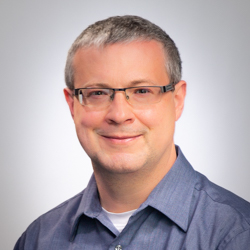Biographie
Neumann a obtenu un baccalauréat en biologie et en chimie (1997) du King College. Il a obtenu son doctorat. en immunologie (2005) de l'Université de Pennsylvanie sous la direction du Dr Larry Turka. Suite à son doctorat. diplôme, il a complété une bourse de recherche postdoctorale (2011) en biologie et biophysique des cellules immunitaires innées à l'Université de Caroline du Nord à Chapel Hill sous le mentorat du Dr Ken Jacobson.
Présentation personnelle
Ma formation et mon expérience en immunologie, microbiologie fongique et méthodes de microscopie quantitative à fluorescence pour étudier la biophysique cellulaire ont conduit à une fascination pour la biophysique de la reconnaissance fongique immunitaire innée ainsi que pour les nouvelles approches thérapeutiques et diagnostiques des pathogènes fongiques, tels que Candida albicans. Mon laboratoire poursuit un effort à long terme pour comprendre la nanobiologie de la reconnaissance fongique à la fois du point de vue de l'agent pathogène et de l'hôte. Nous explorons la structure et l'organisation des polysaccharides immunogènes de la paroi cellulaire de Candida et les mécanismes qui régulent leur structure, déterminant ainsi la nanotopographie physique et chimique perçue par les immunocytes innés qui répondent. Du point de vue de l'hôte, nous cherchons à comprendre les premiers événements de la reconnaissance des agents pathogènes fongiques par les immunorécepteurs innés, y compris la lectine de type C Dectin-1, lorsqu'ils se lient aux ligands de la paroi cellulaire et interagissent les uns avec les autres dans un réseau complexe d'interactions de signalisation. . Nous synthétisons ces points de vue centrés sur l'hôte et l'agent pathogène en étudiant la biogenèse à l'échelle microscopique, la maturation et la fonction des sites de contact entre les leucocytes et les agents pathogènes de l'espèce Candida. Nous poursuivons également d'autres axes de recherche dans les domaines des activités anti-Candida des antimicrobiens activés par la lumière ainsi que la détection de Candida via des approches spectroscopiques. Mon programme de recherche utilise un large éventail de technologies, notamment la microscopie à super résolution, l'imagerie à vie par fluorescence/transfert d'énergie par résonance Förster, la microscopie TIRF, la microscopie confocale de cellules vivantes, la modélisation informatique prédictive, les mesures de force biologique, la fabrication par nanofabrication de dispositifs biomimétiques et la spectroscopie optique. Notre succès est renforcé par un réseau diversifié de collaborateurs et leur expertise en nanoscopie optique et spectroscopie, modélisation mathématique, génie des semi-conducteurs, mécanobiologie et physico-chimie des biopolymères.
Mes activités d'enseignement s'articulent autour de l'enseignement en classe du programme d'études du programme d'études supérieures en sciences biomédicales (BSGP) de l'UNM et du mentorat de recherche pour les stagiaires du niveau secondaire au niveau post-doctoral. J'aime particulièrement initier les étudiants à la structure et à la fonction des membranes biologiques; signalisation des récepteurs et biophysique dans l'immunité ; approches de modélisation informatique des problèmes biologiques; et la pathogenèse et l'immunobiologie des maladies infectieuses grâce à l'enseignement régulier et à la direction de plusieurs cours de notre programme biomédical d'études supérieures. C'est également un plaisir d'encadrer le travail académique et le développement de carrière des stagiaires de recherche, y compris les étudiants diplômés des programmes BSGP, génie biomédical et physique de l'UNM, grâce à leur implication dans mes objectifs de recherche.
Domaines de spécialité
Immunologie innée
Pathogenèse fongique
biologie cellulaire
Biophysique
Microscopie de fluorescence quantitative
Langues
- Anglais
Cours enseignés
BIOM508, Biologie cellulaire (Instructeur). Biochimie et biophysique des membranes biologiques et leurs rôles essentiels dans la signalisation, l'organisation membranaire, le transport cellulaire des ions et la détermination de la polarité.
BIOM522, Méthodes en biologie cellulaire (Instructeur). Outils pour comprendre la structure et la fonction biomoléculaires à l'aide de mutations biomimétiques, de conjugaisons chimiques et de méthodes de caractérisation physique.
BIOM514, Immunologie (co-directeur, chargé de cours). Coordination d'un aperçu de niveau universitaire de l'immunologie d'un point de vue biomédical concernant l'immunité innée et adaptative humaine et leur application à divers états pathologiques tels que l'infection, l'auto-immunité, l'allergie, l'immunodéficience et le cancer. Conférences enseignées spécifiquement sur la transduction du signal et les aspects biophysiques de l'activation des cellules immunitaires.
BIOM652, Immunopathogenèse et immunité dans les maladies infectieuses (directeur, instructeur). Exploration approfondie de l'implication de l'immunité et de l'immunopathogenèse dans la défense de l'hôte contre les pathogènes viraux, bactériens et eucaryotes. Conférences enseignées spécifiquement sur la pathogenèse et l'immunité fongiques ainsi que des instructions pratiques sur l'application de la modélisation informatique basée sur les agents aux problèmes d'infection et d'immunité.
BIOM505(ST), Host-Pathogen Journal Club (Co-directeur). Discussion hebdomadaire qui aide les étudiants à affiner leur pensée critique et leurs compétences de présentation tout en approfondissant notre connaissance de la littérature de recherche actuelle sur les maladies infectieuses et l'immunité.
Recherche et bourse
Travaux de recherche évalués par des pairs :
Une bibliographie à jour peut être consultée sur
https://www.ncbi.nlm.nih.gov/myncbi/aaron.neumann.1/bibliography/public/
Prépublications de recherche notables :
Anaya EU, Amin AE, Wester MJ, Danielson ME, Michel KS, Neumann AK. L'agrégation Et La Signalisation Moléculaire Dectine-1 Est Sensible à La Structure ß-Glucane Et L'exposition Aux Glucanes Sur Candida albicans Cell Walls. bioRxiv. 2020er janvier 1;824995. est ce que je: https://doi.org/10.1101/824995

